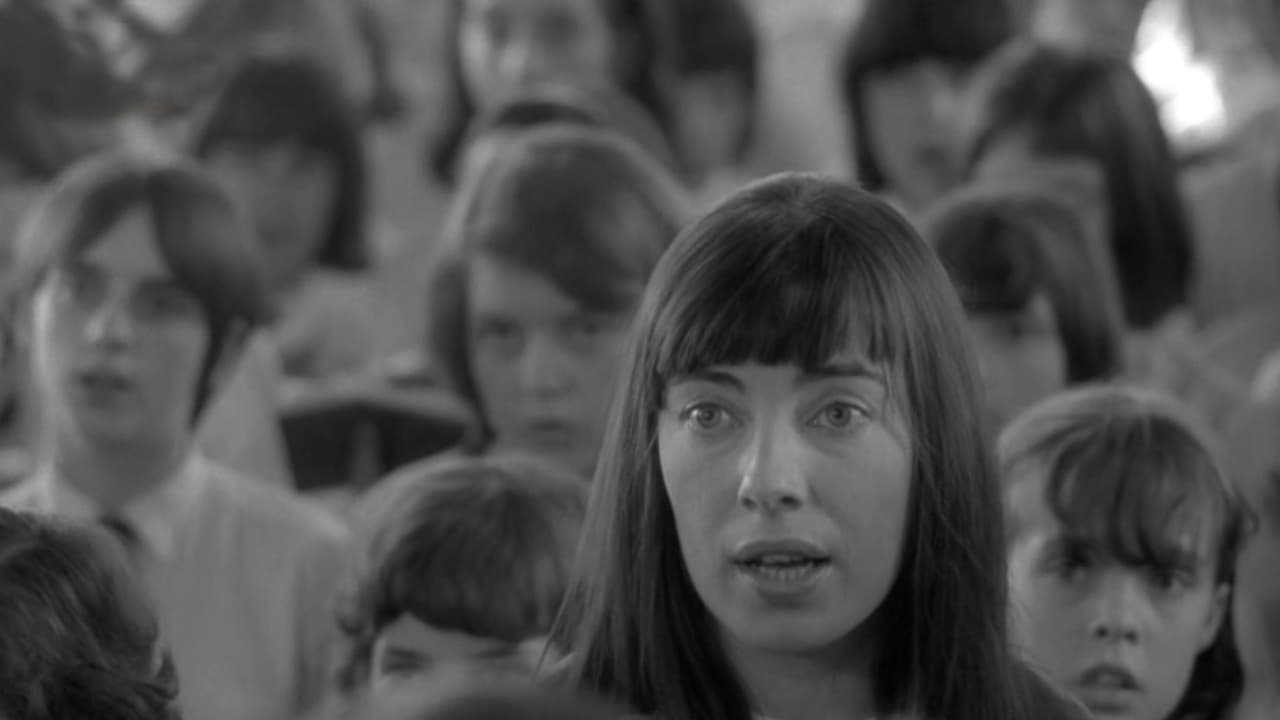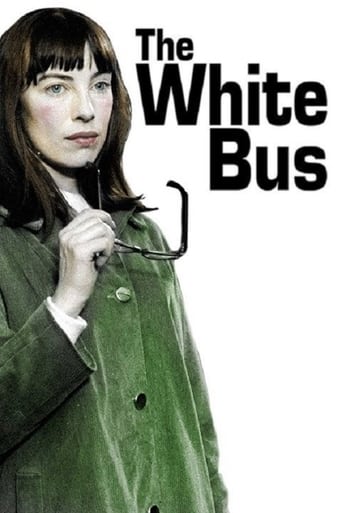ManiakJiggy
This is How Movies Should Be Made
LastingAware
The greatest movie ever!
Dynamixor
The performances transcend the film's tropes, grounding it in characters that feel more complete than this subgenre often produces.
Brendon Jones
It’s fine. It's literally the definition of a fine movie. You’ve seen it before, you know every beat and outcome before the characters even do. Only question is how much escapism you’re looking for.
jfarms1956
The White Bus (a.k.a. Red, White and Zero) is a movie geared for adults. It deals with depressed thoughts. I found the film basically pointless and aimless and a waste of time to watch. The film is basically a black and white film with flashes of colorization for a few seconds and then black and white again. This happened several times throughout the movie. I found no purpose in this. Also, in the beginning, it seems that editing did not do its work well. There is a scene with the star hanging in her office for a few moments and was very disjointed. Don't waste your time with this film. There are many other better films to watch -- try attack of the killer tomatoes -- at least it's so stupid it's almost funny.
Kris Kochanski
I saw this film for the first time about a week ago. Honestly, I didn't understand most of it. If given the chance to watch it again, I would, mostly to try to figure it out. It gave my husband the creeps.The film is done with high quality and is masterful in setting moods. It runs like a nightmare, though. Situations in it are surreal, otherworldly, loud and then suddenly quiet. It seems to me that "The White Bus" is contrasting male and female roles in the workplace and why should it be wrong for women to take on some of the jobs that men are performing. When the Girl first joins the eerie tour, she sits on the bottom of the bus but soon after moves to the top of it, perhaps as an allegory for rising up in the world, freeing herself from the restraints of roles that placed squarely on each gender. At one point, when the Lord Mayor places his hand on the Girl's knee, it is a sexist gesture and the Girl frees herself by demanding that he remove his hand and then moving to the front of the bus.I give it five out of ten, simply because I don't understand it, although the filming of it was high quality work. If put into the context of all three of the films for which it was intended to be seen, then perhaps I would understand it better.
runamokprods
Interesting 47 minute short from a Shelagh Delaney short story. A girl quits her dull job, and goes on a surrealistic bus tour of a dilapidated Manchester. Along for the ride are a strange mix, including a lascivious vicar, lord mayor (Arthur Lowe, always great), etc. Many of the techniques that became part of 'If' and 'O Lucky Man' first show up here.(e.g. mixing color and B+W). It also follows 'O Lucky Man' in being a surreal journey of a somewhat passive, young lead character traveling through a world where they have little power. Enigmatic, sure, but it's interesting and entertaining in a Brechtian/Anderson sort of dark humored politically satirical way. Cleary it's making fun of the pathetic nature of modern society and our desperate need to justify all the glories of 'progress that really sap our humanity. Some terrific and haunting images. Anthony Hopkins appears very briefly singing in German (?!?).
allenrogerj
An early film, originally meant to be part of a three part set of adaptations of stories by Shelagh Delaney, which was never finished, which has many of the techniques that Anderson later used in If and O lucky Man. A girl finishes work in an open-plan office of the type there used to be, walks past the hanging body of another girl (or perhaps her own body- the film could be an after-death fantasy) takes a train to a Northern town, latches onto a civic tour led by the mayor and has a bag of chips in a café. That's the story. What goes with it is Anderson's strange way of looking at what may be reality- when the girl is going to catch the train a young upper-class man makes a long speech at her, both declaring his love and arguing for class distinctions. All the girl says is "Goodbye". Again, there is no way of telling if the man is a fantasy of the girl's or- if he is "real" in the film's context- whether he is connected with the girl in any way. In the Northern town the girl gets on/is roped into a tour led by the mayor. The mayor- played by Arthur Lowe, one of Anderson's regular actors- is both absurd and dignified, presented dead-pan the mace bearer is a sinister character, making gnomic remarks, a messenger of death, perhaps; the passengers include Africans and Indians and they look round the town- an industrialist's estate left to the town where he made his wealth, a girls' school, a museum, a library... In the end the girl wanders off and sits in a chippie with a bag of chips as the owners clean up around her- a perfect cinematic koan, no longer than it need be.Afterword, two years later:I forgot some important aspects in my last review, or I saw a different version today: the girl says "I'll write", not "Goodbye" to the upper-class young man and i'd forgotten how deliberately the film slides in and out of different kinds of reality and how much it uses parody and cliché- the mayor's obsession with "mucky books" in the library, the painting of Jesus with a flock of wolves in the art gallery, the tableau of Le Dejeuner sur l'Herbe in the park, the industrial estate depicted as a meaningless mechanical hell with the visitors walking immune through its perils, the realistic scene of Civil Defence practise which ends with the whole party turned into literal dummies except the girl. Above all, though, I forgot the film's opening: a different girl on a tour boat going downriver through London, past Parliament, photographed with ritualistic care, past the Shell Building, through the City where the girl in the film works, which makes the whole main action even more distanced and derealised.

